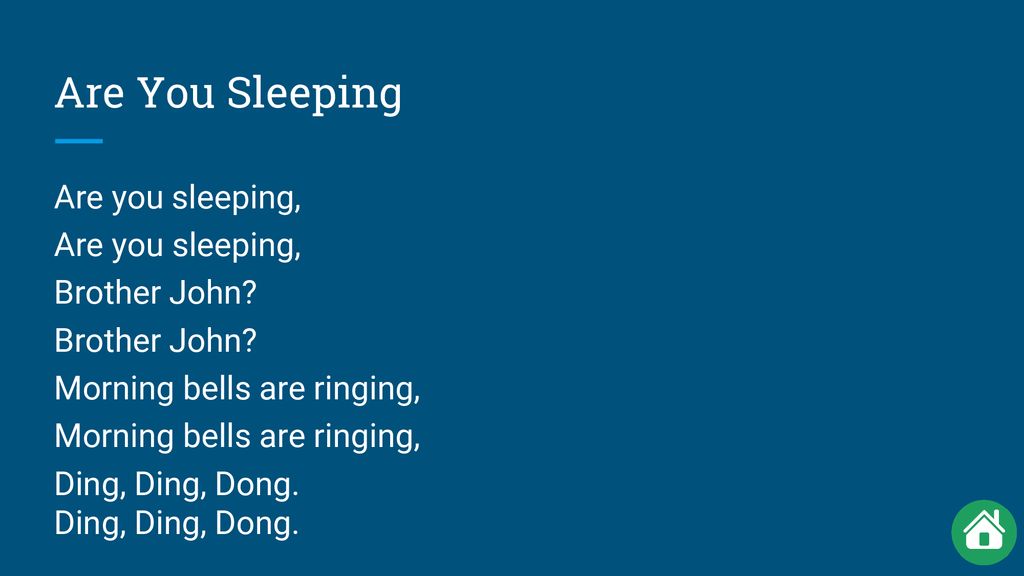


While a 10% advantage may not sound revolutionary, it’s not bad considering the lack of effort required. The participants on average gave the answer correct 60% of the time. Human translations with examples: aún, luego, estás dormido, estas durmiendo, ¿y quién es él. Scientists would then ask the participants if the word presented was bigger or smaller than a shoe box. Contextual translation of 'are you still sleeping' into Spanish. For example, one word was given the definition of “key” for the study.
Are you sleeping in spanish series#
Participants were shown a number of words from the invented languages and asked a series of questions.

The new words were created to ensure that the participants of the study had no prior knowledge of the words they would be presented with.Īfter playing the new vocabulary tied to real German words at certain times while sleeping, the participants of the study were put to the test. You may believe that you can turn no into yes but when the sleepy time voters wake up they will soon throw this out. Their research was published in the journal Cerebral Cortex by the Swiss National Science Foundation.Īnother study took a group of 41 Germans and had them listen to groups of made-up words while sleeping. Learn How Do You Say ‘Im Sleepy In Spanish Be able to tell someone Im Sleepy In Spanish Tengo sueno The Spanish Dates: ht.In their study, evidence showed that listening to newly-learned foreign vocabulary while sleeping can help solidify the memory of new words. But there’s a catch: it only works when we you review the words while conscious. Only the user who asked this question will see who disagreed with this answer. One study conducted by a team of Swiss psychologists shows some evidence adding to the credibility of sleep learning a language. See a translation Report copyright infringement Answers Close When you 'disagree' with an answer. The Case for Learning a Language While You Sleep While the concept hasn’t gotten a lot of attention by the scientific community, two modern studies caught our attention. Frre Jacques also known in English as Brother John, is a nursery rhyme of French origin. Everyone knows the old saying “if it sounds too good to be true, it probably is.” But what we learned when we started investigating sleep learning surprised us.


 0 kommentar(er)
0 kommentar(er)
